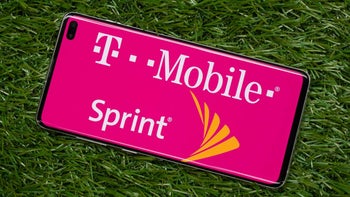Final approval for T-Mobile-Sprint merger might not come until July or even later

Every time that we think that there is light at the end of the tunnel that we call the T-Mobile-Sprint merger, another issue pops up threatening to block the $26.5 billion merger. And with the spread between the value of Sprint's shares if the deal were to close today and the actual price of the stock at a still very high $3.51, the smart money doesn't feel that this transaction is going to get done.
T-Mobile and Sprint expertly managed to do the impossible and garner approval for the $26.5 billion merger from the two regulatory agencies that were ready to shoot them down, the FCC and the Justice Department (DOJ). But then came a lawsuit from several state attorneys general and the attorney general of Washington D.C. A non-jury trial in front of Federal Judge Vincent Marrero ended earlier this month and a decision is expected next month. It isn't clear whether the side that loses the trial will appeal, but even if the defendants win and the states decide to let it go, another hurdle that we previously mentioned could block the merger.
The California Public Utilities Commission can delay the merger's closing to July and beyond
Two weeks ago, Judge Timothy Kelly extended his Tunney Act review to the middle of next month. Under this act, an independent court must review the actions taken by the Justice Department to make sure that a concession it reaches with a company regarding a potential merger is in the best interest of the public. As with everything related to the government's vetting of the T-Mobile-Sprint merger, there is no clear cut idea which way the gavel will land. You might recall that the DOJ allowed the merger to pass after Sprint agreed to a $5 billion deal with satellite television provider Dish Network to turn the latter into the "fourth nationwide facilities-based network competitor" replacing Sprint if the merger closes.

T-Mobile has already launched a nationwide 5G network in the U.S. using its low-band 600MHz spectrum
Dish chairman Charles Ergen has long desired to run a wireless provider and once the T-Mobile-Sprint merger is approved, Dish will purchase all of Sprint's prepaid assets including Boost Mobile and its 9.3 million subscribers. It will also receive 14MHz of 800MHz spectrum, 400 employees and 7,500 retail locations. Dish will sign a seven-year MVNO deal with T-Mobile allowing the satellite television provider to start selling wireless service under its name while building a 5G network.
Even if all of the above goes T-Mobile's way, the Wall Street Journal reports that the transaction must be approved by the California Public Utilities Commission (PUC). And here's the kicker. The California PUC has until July to vote on whether to approve the merger; it can even decide to extend that deadline past July. Neither T-Mobile nor Sprint is headquartered in California, but both have plenty of subscribers who reside in the state. The commission says that it is currently reviewing the case.
Samuel Weinstein, an assistant law professor at the Cardozo School of Law at Yeshiva University, said that the utilities commission "...has some leverage, but it’s not endless." The professor added, "What tends to come out of these proceedings is some concessions by the merging parties." In November, T-Mobile settled with the states of Nevada and Texas; in exchange for dropping out of the lawsuit that we discussed at the beginning of this article, T-Mobile agreed to meet certain pricing restrictions (such as a five-year price freeze in Texas) and cover certain percentages of each state with 5G signals. Other legal experts say that it is unlikely that the California PUC to block the T-Mobile-Sprint merger. Instead, the commission could try and wrangle some more concessions from the two wireless providers in return for voting in favor of it.
T-Mobile is hoping to complete the merger so that it can pick up Sprint's 2.5GHz mid-band spectrum to complement its 600MHz low-band airwaves and mmWave ultra-high-band signals. CEO John Legere testified in court during the trial that with the merger, T-Mobile will have "triple the total 5G capacity of standalone T-Mobile and Sprint combined." If the merger is blocked, the executive stated that in some markets, T-Mobile will "exhaust capacity in the next two to four years."










Things that are NOT allowed: